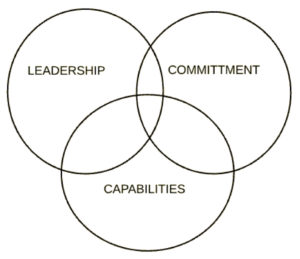 One of the secrets of successful multigenerational family businesses is their attention to three critical qualities within the family as a whole, and as possessed by the person who will be their next leader. These are: commitment, capabilities, talent for leadership. I intend to discuss each of these over the course of my next few blogs and newsletter postings, starting today with ‘commitment.’
One of the secrets of successful multigenerational family businesses is their attention to three critical qualities within the family as a whole, and as possessed by the person who will be their next leader. These are: commitment, capabilities, talent for leadership. I intend to discuss each of these over the course of my next few blogs and newsletter postings, starting today with ‘commitment.’
Family business advisors often look at ‘commitment’ from the point of view of what motivates next-generation members to join the business. This is often assessed in terms of four factors. One: the young person knows and loves the business and the opportunities it provides. Two: the person knows they are expected to join the business. These expectations can escalate to bona fide pressure to do so. Three: Joining the family business is seen as their best alternative. Four: They have a sense of being dependent on the family and the business.
It’s always useful to define our terms. So what does the word ‘commitment’ mean? A visit to Merriam Webster online brings up this first set of definitions:
a: an agreement or pledge to do something in the future
b: something pledged
c: the state or an instance of being obligated or emotionally impelled
Some commitments are major, like marriage. Here there is a public statement of intention to fulfill the obligations inherent in the relationship, and to give priority to these obligations over lesser concerns. This commitment invokes a pledge by each partner to learn the tools necessary to support the relationship.
A commitment to a family business is also major. Members of family firms often have high levels of emotional attachment and are pledged to the firm’s success. They too are committed to learning the tools needed, in this case, to sustain the business.
For successful multigenerational businesses this commitment includes dedicating time and effort to consciously and systematically developing their next generation of family members and leaders. These strategies engender emotional attachment to the family business. This helps ensure that upcoming generations of family members make a commitment to join the family business from knowledge, love and appreciation, thus shaping its future.
